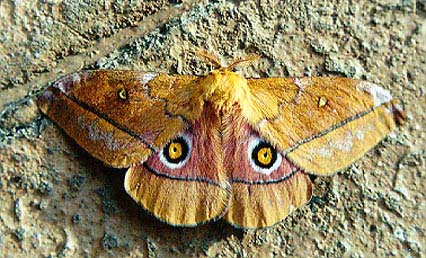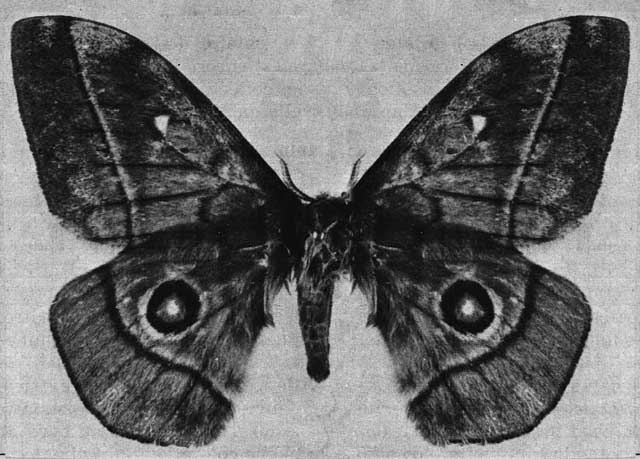Nudaurelia belayneshae
Gonimbrasia (Nudaurelia) belayneshae
Rougeot, 1978

Nudaurelia belayneshae Kenya, courtesy of Bill Hark.
This site has been created by Bill Oehlke.
Comments, suggestions and/or additional information are welcomed by Bill.
| TAXONOMY:
Superfamily: Bombycoidea, Latreille, 1802
Family: Saturniidae, Boisduval, [1837] 1834
Subfamily: Saturniinae, Boisduval, [1837] 1834
Tribe: Bunaeini, Packard, 1902
Genus: Nudaurelia, W. Rothschild, 1895
|
DISTRIBUTION:
Nudaurelia belaynesae (HT male wingspan approximately 101mm) flies in
Kenya: Marioshoni Forest, Njoro. Bill Hark photographed the specimen at the top of the page
at Ark Forest Lodge in Aberdare National Park,
in the Rift Valley Region, Kenya, on February 13, 1998.
The Aberdare range, 160 km long, is located in the Central Highlands, Central Province, west of Mount Kenya and north of Nairobi, serving
as the Kenyan Rift Valley's east wall.
The park is the highest in all Africa, since most of the plateau is located above an altitude of 3,000 m. The highest peaks in the
park are the Kinangop, with 3,906m, and the Oldonyo Lesatima, "the mountain of the young bull" in the Maa language of the
Maasai, with 4,001m. The landscape is dominated by deeply foggy rain forest, which confers the park a fairyland atmosphere.

Imbrasia (Nuduarelia) belayneshae HT male, Marioshoni Forest, Njoro, Kenya,
101mm, April, Pierre Claude Rougeot.
FLIGHT TIMES AND PREFERRED FOOD PLANTS:
The
Nudaurelia belayneshae moth flies in February and April (HT) and possibly in other months.
Larval hosts are unknown.
ECLOSION, SCENTING AND MATING:
Eclosion is from underground pupae.
Both sexes fly at night with the males coming in to lights around midnight, the scenting time of the females.
EGGS, LARVAE AND PUPAE:
Mature larvae pupate in subterranean chambers.
Larval Food Plants
It is hoped that this alphabetical listing followed by the common
name of the foodplant will prove useful. The list is not exhaustive.
Experimenting with closely related foodplants is worthwhile.
I suspect the species name, "belayneshae" is honourific for a female whose first name is Belaynesha.
Use your browser "Back" button to return to the previous page.

